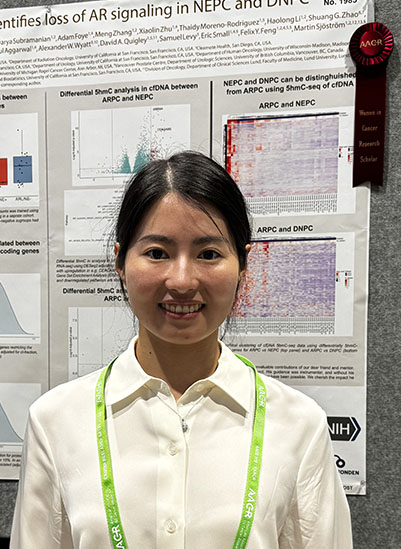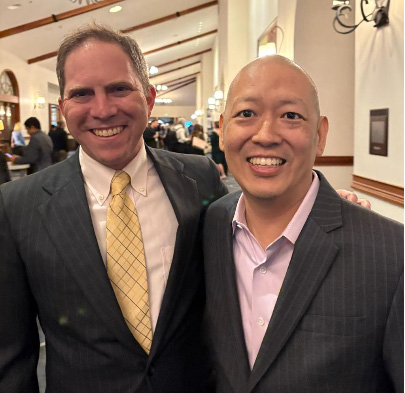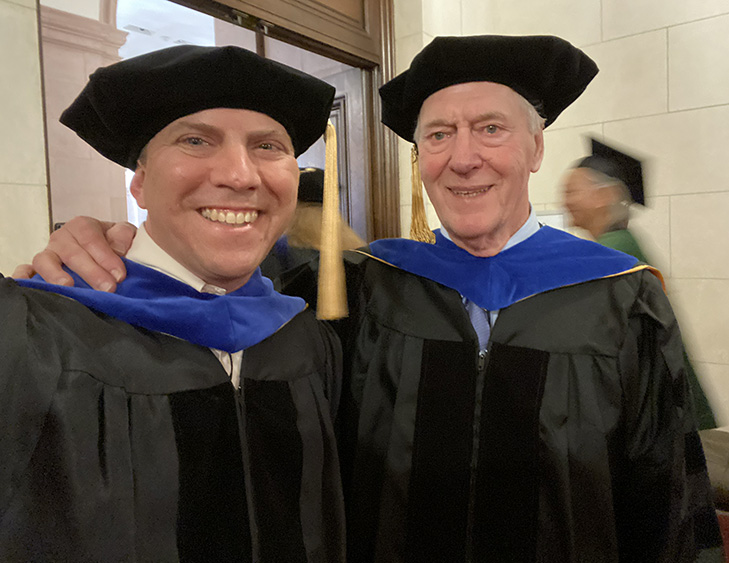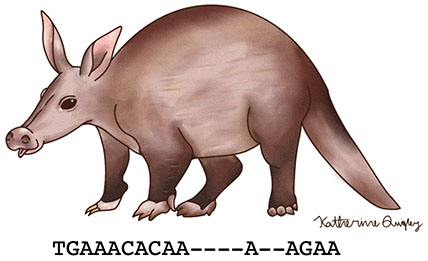The Quigley Lab studies how prostate tumors develop resistance to targeted therapy. We study patient tumors directly to discover how genomic and epigenomic alterations acquired by the tumor affect patient outcomes. This knowledge can help us to develop novel therapies and identify predictive and prognostic biomarkers.
Our lab is part of the Department of Urology and the Helen Diller Family Comprehensive Cancer Center at the University of California, San Francisco.
For an overview of research in our group, visit the About the Lab page.
Recent publications
- Integrated Hi-C analysis of metastatic prostate tumor biopsies (Zhao et al. Nature Genetics 2024)
- An Atlas of Accessible Chromatin in Advanced Prostate Cancer Reveals the Epigenetic Evolution during Tumor Progression. (Shrestha et al. Cancer Research 2024)
- Alternative promoter use evolves as tumors develop resistance to androgen-targeted therapy (Zhang et al. Nature Cell Biology 2024)
- The genomic and epigenomic landscape of double-negative prostate tumors (Lundberg et al. Cancer Research 2023)
News
May 2025
- Congratulations to staff scientist Nicholis Lillis, who has moved on from our lab to a MD/PhD training program at Baylor and MD Anderson.
- Congratulations also to Meng Zhang, PhD, who will be starting her own independent lab at Emory this year! Meng is a rock star and will run a combined wet lab and computational group.
April 2025
- Congratulations to postdoc Rensheng Wan, who presented her work at the AACR national meeting. Renshen received an AACR Women in Science travel award to underwrite her trip.

March 2025
- Congratulations to graduate student Siddharth Mahesh on passing his qualifying exam in the Department of Biomedical Informatics! Great work, Sid!
February 2025
- Congratulations to postdoctoral scholar Rensheng Wan on her receipt of a Women in Cancer Research Scholar Award from the American Association for Cancer Research. Rensheng will be presenting her ongoing work at AACR this year.
January 2025
- The lab welcomes Biomedical Informatics graduate student Rashad Reid to a rotation.
- It is with gratitude and humility that I announce I have been made the Felix Feng Endowed Professor of Urology at UCSF. This endowment will directly support Felix's legacy of discovery science in prostate cancer. I could not imagine a more personally meaningful namesake for this funding award, and I am happy to have another way to carry on Felix's legacy. I thank UCSF and the donors who generously underwrote this endowment.
- Congratulations to postdoc Meng Zhang on her story in UroToday summarizing her recent paper published in Nature Cell Biology.
December 2024
- I am heartbroken to write that my friend, collaborator, and mentor Felix Feng passed away this December. Felix was a giant in his field and a dear friend to many people. If you can I encourage you to support the American Cancer Society-American Society of Radiation Oncology Felix Feng, MD Clinician Scientist Development Grant Award, established by his colleagues to honor his career & lifetime contributions. You can contribute at this link: https://ow.ly/Uc3H50TSBiC.

November 2024
- Congratulations to lab alums Martin Sjöström, MD and Arian Lundberg, PhD for starting their own laboratories as independent investigators!
October 2024
- Congratulations to Xiaolin Zhu MD, PhD on the publication of his project Genomic and transcriptomic features of androgen receptor signaling inhibitor resistance in metastatic castration-resistant prostate cancer in the Journal of Clinical Investigation. In this work Xiaolin contrasted paired metastatic biopsies obtained before initiation of first-line androgen pathway inhibition therapy for mCRPC and after radiographic disease progression. This work identifies recurrent somatic alterations associated with progression and characterized the role of the gene SSTR1 in progression on androgen pathway inhibitors.
- Congratulations to lab alum Arian Lundberg, PhD for being named a Prostate Cancer Foundation Young Investigator!
September 2024
- We welcome UCSF Biomedical Informatics graduate student William Johnson to his Fall rotation in the Quigley lab! Also, a belated welcome to Staff Scientist Yuxin Yang, who joined us in August.
August 2024
- David Quigley received the Rob Sutherland Award at the 8th International 2024 PacRim Breast and Prostate Cancer Meeting in Darwin, Australia.

July 2024
- We welcome Biomedical Informatics graduate student Siddharth Mahesh to the Quigley lab!
- Congratulations to postdoc Raunak Shrestha on the publication of An Atlas of Accessible Chromatin in Advanced Prostate Cancer Reveals the Epigenetic Evolution during Tumor Progression in Cancer Research. This work produced chromatin accessibility maps linked to the binding of lineage-specific transcription factors (TF) by performing ATAC sequencing on 70 mCRPC tissue biopsies integrated with transcriptome and whole genome sequencing.
June 2024
- Congratulations to postdoc Meng Zhang on the publication of Integrative analysis of ultra-deep RNA-seq reveals alternative promoter usage as a mechanism of activating oncogenic programmes during prostate cancer progression in Nature Cell Biology. This work showed Alternative Promoters (APs) become increasingly important as prostate cells evolve into metastatic tumors. Many groups (including us!) tend to focus on canonical gene promoters in genome-wide studies of mCRPC. Meng used very deep RNA-sequencing to interrogate all annotated promoters in benign, localized, and mCRPC biopsies. Meng found AP use changes as tumors develop therapy resistance and she linked these changes to binding activity of key disease drivers. Meng then linked changes in AP activity to epigenomic alterations at specific AP sites.
May 2024
- David Quigley received the UCSF 2024 Outstanding Faculty Mentorship Award, chosen by the Associated Students of the Graduate Division. Dr. Quigley was honored to accept this award while standing on the same stage as Professor Allan Balmain (pictured below), his first UCSF mentor and supervisor for many years.

January 2024
- The Quigley lab has been awarded a $1,000,000 three year Data Science Award from the Department of Defense's Prostate Cancer Research Program. Metastatic castration-resistant prostate cancer (mCRPC) is unfortunately a lethal disease because most patients develop resistance to available therapies. Some mCRPC tumors resist therapy by becoming more efficient at processing androgen and remain androgen-dependent. However, a substantial number of mCRPC tumors change their behavior to reduce or eliminate their reliance on androgen signaling. This award will fund computational analysis into the transcriptional drivers of treatment-resistant mCRPC subtypes.
- Congratulations to Dr. Xiaolin Zhu on receiving a Physician Research Award from the Department of Defense's Prostate Cancer Research Program. Dr. Zhu will be co-mentored by Felix Feng and David Quigley on this four year, $750,000 award.
- We welcome UCSF Biomedical Informatics rotation student Siddharth Mahesh for a Winter rotation in the lab.
December 2023
- David Quigley presented a lecture on Quigley lab's recent study The genomic and epigenomic landscape of double-negative metastatic prostate cancer to the VA Precision Oncology Program for Cancer of the Prostate (POPCaP) program.
August 2023

- Congratulations to postdoc Thaidy Moreno on the publication of AARDVARK: An Automated Reversion Detector for Variants Affecting Resistance Kinetics in Bioinformatics. AARDVARK automatically detects and annotates mutations that cause resistance to PARP inhibitor and platinum therapy by analyzing tumor sequence data. You can download the AARDVARK R package on Github.
- UroToday Interview: David Quigley and Andrea Miyahira (Prostate Cancer Foundation) discuss the lab's recent paper on UroToday.
June 2023
- Congratulations to postdoc Arian Lundberg on the publication of The genomic and epigenomic landscape of double-negative metastatic prostate cancer in Cancer Research. In this work from our lab, presented at AACR Prostate Cancer 2023, we used unbiased analysis of 134 metastatic tumor biopsies from the West Coast Dream Team collaboration to dig into the transcription factors that drive different subtypes of therapy-resistance disease.
March 2023

February 2023
- David Quigley and postdoc Meng Zhang will be presenting talks the upcoming AACR Prostate Cancer meeting in March.
January 2023
- Congratulations to postdocs Arian Lundberg and Thaidy Moreno-Rodriguez on receiving UCSF Cancer Center Travel Awards to present their research at the upcoming AACR Prostate Cancer meeting in March!
October 2022
- We welcome Joaquín Magaña as a Fall rotation student from the UCSF Bioinformatics program.
- Congratulations to HemOnc fellow Xiaolin Zhu and postdoc Raunak Shrestha on receiving Prostate Cancer Foundation Young Investigator awards!
September 2022
- Congratulations to postdoc Martin Sjöeström and the West Coast Dream Team collaboration on the publication of The 5-Hydroxymethylcytosine Landscape of Prostate Cancer, now out in Cancer Research.
- Check out our latest commentary in Cancer Discovery, led by postdocs Thaidy Moreno-Rodriguez and Meng Zhang.